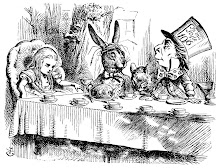
This book take the reader into a world where democracy and capitalism were never heard, ans is the real life story of JUNG CHANG. Reading the novel, people that have never lived through Communism, have the opportunity to learn many historical fact through three generations, and most of all the cost of life distruction because of futile beliefs and hollow idealisms!!
My grandmother's feet had been bound when she was two years old. Her mother, who herself had bound feet, first wound a piece of white cloth about twenty feet long round her feet, bending all the toes except the big toe inward and under the sole. Then she placed a large stone on top to crush the arch. My grandmother screamed in agony and begged her to stop. Her mother had to stick a cloth into her mouth to gag her. My granmother passed out repeatedly from the pain.
The general's wife told her to sit down. My grandmother had to make a split- second decision. In a traditional Chinese household, where one sits automatically reflects ones's status. General Xue's wife was sitting at the north end of the room, as beffited in her position. Next to her, separated by a side table, was another chair, also facing south: this was the general's seat. Down each side of the room was a row of chairs for people of different status. My granmother shuffled backwards and sat on one of the chairs nearest the door, to show humility. The wife then asked her to come forward- just a little. She had to show some generosity.
One factory just outside the city made insulating circuits. Living conditions there, as in every other factory, were apalling, with scores of women sleeping in a huge shack build of straw and babmoo. The food was woefully inadequate: the workers got meat only twice a month, even though they were doing exhausting work. Many of the women had to stand in cold water for eight hours at a stretch washing the porcelain insulators. Tuberculosis, from malnutrition and lack of hygiene, was common. The eating bowls and chopsticks were never properly washed and were all mixed up together.
Our political meetings now included an examination of how we were observing 'the disciplines in foreign contac'. It was stated that I had violated these because my eyes looked 'too interested', I 'smiled too often', and when I did so I opened my mouth 'too wide'. I was also criticised for using hand gestures: we women students were supposed to keep our hands under the table and sit motionless.
Wherever we went as we traveled down the Yangtze we saw the aftermath of the Cultural Revolution: temples smashed, statues toppled, and old towns wrecked. Little evidence remained of China's ancient civiliziation. But the loss went even deeper than this. Not only had China destroyed most of its beautiful things, it had lost its appreciation of them, and was unable to make new ones. Except for the much-scarred but still stunning landscape, China had become an ugly country.
There were so many other fragments that I had underlined, but it's impossible to include all of them.
Enjoy the rest of the book :)


No comments:
Post a Comment